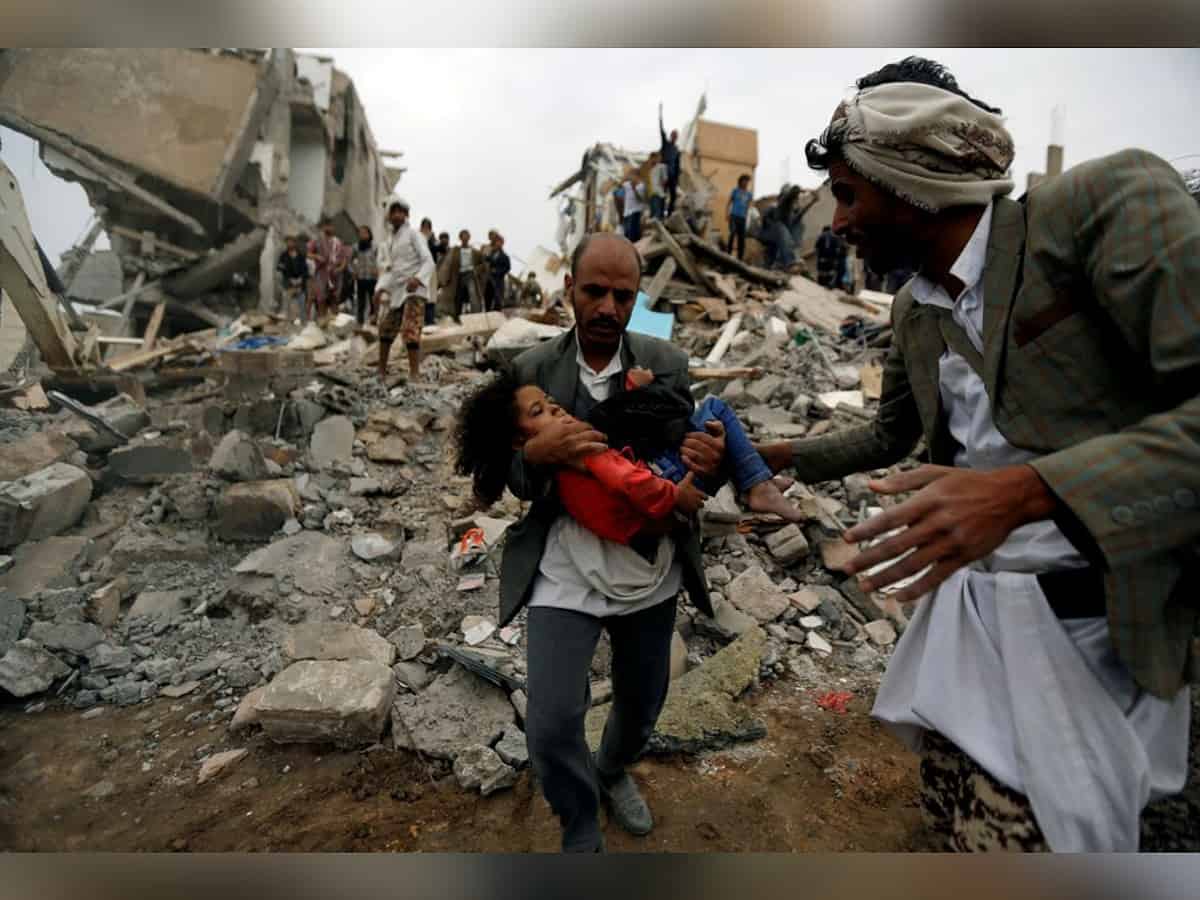
Sanaa: Hundreds of people were forced to leave their homes as fighting between the Yemeni government and the Houthi militia has continued to escalate in the war-torn nation’s oil-rich province of Marib, a military official said.
Key areas in Marib have been engulfed in armed confrontations over the past few days, leading to a large number of casualties on both sides, the official told Xinhua news agency late Wednesday.
He said that the situation has become increasingly dire for the civilians caught in the crossfire in Harib district, as many have been forced to leave their homes and belongings behind in search of safer places.
“The ongoing battles prompted a mass exodus of people from several villages in Marib and Shabwa provinces, causing overcrowding in temporary shelters and refugee camps with limited resources,” said the official.
From March 19 to 25, approximately 235 families, comprising 1,410 individuals, were forced to leave their homes in Marib, Hodeidah, and Taiz, according to the International Migration Organization (IOM).
The total number of families that had been transferred to various provinces in Yemen since January was 2,030, consisting of 12,180 individuals, according to the IOM.
The recent Houthi attacks against government troops in Marib and other regions have shattered hopes for a lasting peace pact.
The UN-brokered truce, which lasted from April to October last year, provided a momentary respite in the war-torn country.
Yemen has been embroiled in a devastating civil war since 2014, with the Houthis fighting against the internationally-recognized government and its allies, which include a Saudi Arabia-led coalition.
The years-long war brought the Arab world’s poorest country to the brink of collapse, causing famine and widespread suffering as well as disrupting the country’s food supply chain, leaving millions of people without access to adequate nutrition.



